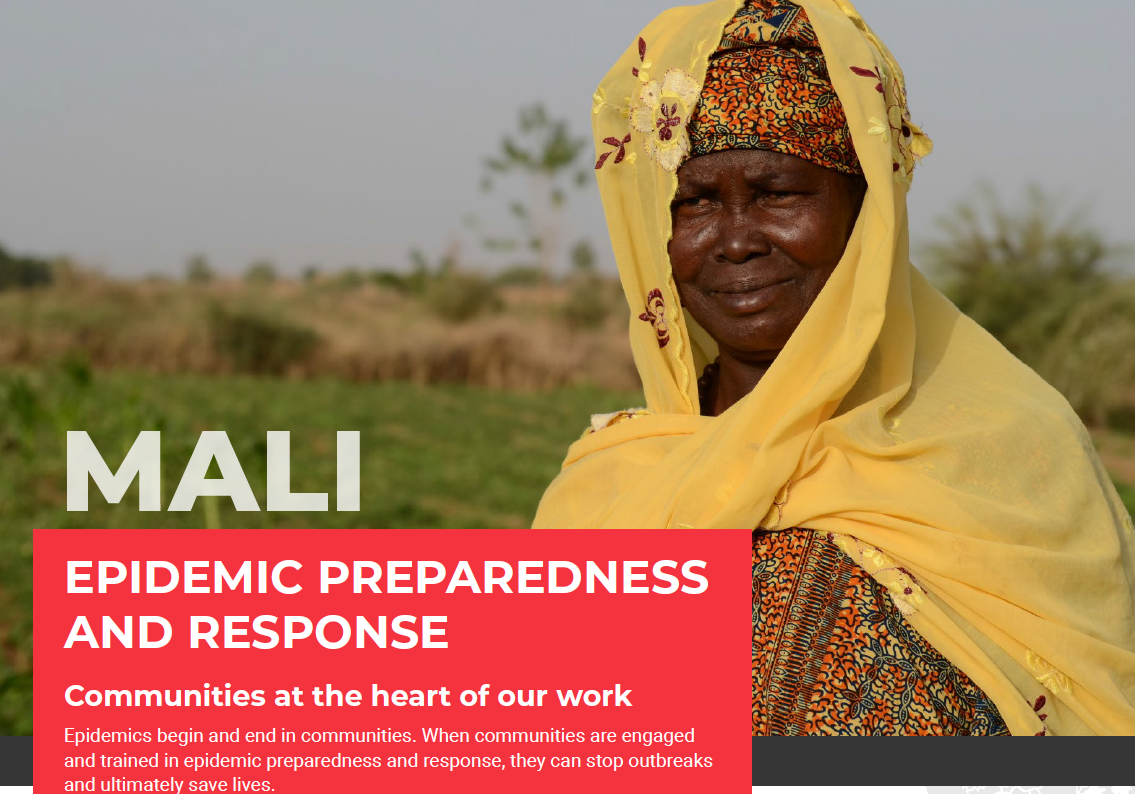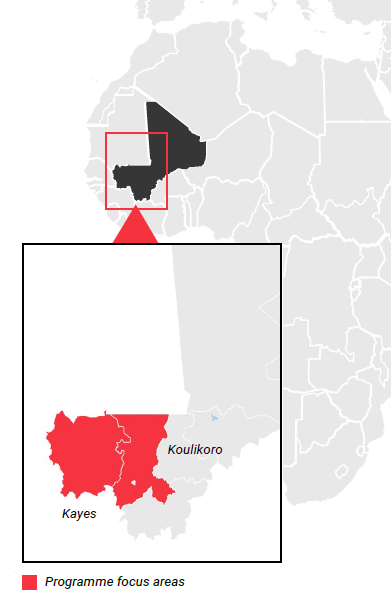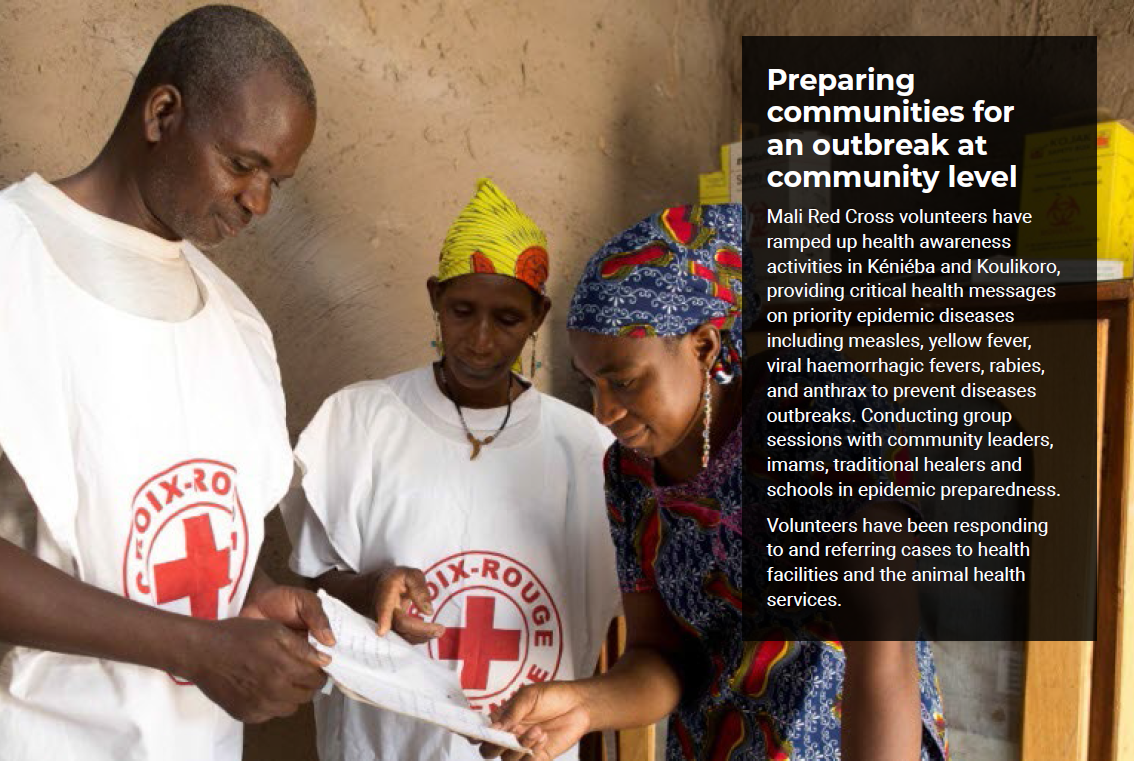


Ongoing insecurity and violence, chronic food insecurity, natural disasters and displacement has created major humanitarian and health needs. The country has long struggled to contain preventable infectious diseases such as malaria, pneumonia and diarrhoea as well as zoonotic diseases. Mali’s child mortality rate is among the highest in the world, with one in ten children dying before their fifth birthday.
Mali Red Cross, with support from the International Federation of the Red Cross and Red Crescent Societies (IFRC) and funding from USAID, has been helping communities prepare for and prevent the spread of diseases. Volunteers are sensitizing communities about health risks, with a focus on epidemic-prone diseases including diarrhoea, measles and yellow fever. Focused in Kayes and Koulikoro regions, Red Cross works with governments, communities, local responders and humanitarian partners to prepare for and respond to epidemics.
Through an extensive network of community-based volunteers, Mali Red Cross is providing critical information in the local and hard-to-reach areas in coordination with other actors including the Ministry of Health and Social Welfare, Ministry of Livestock and Fisheries, Ministry of Environment and Ministry of Agriculture. This is designed to help stop diseases from spreading by detecting them early and at community level, before an outbreak occurs.

We are ensuring communities have itical information about the spread of diseases and how to prevent them, systems to detect outbreaks and mechanisms that ensure information sharing and community engagement.Activities include:
• Engaging communities through house-to-house visits, mobile cinemas and group discussions.
• Engaging, training and collaborating with community influencers, such as imams and traditional healers.
Sierra Leone Red Cross has more than 11,000 volunteers across the country which gives extraordinary reach into communities. In their supporting role to the government, they are often central to emergency responses amid outbreaks. Activities include:
• Strengthening partnerships with different sectors and ministries.
• Training and readying communitybased volunteers.
.Epidemics not only threaten lives but all aspects of society, including trade, transportation and education. We work with a variety of key stakeholders and the media in epidemic preparedness and response. Activities include:
• Helping prepare a variety of sectors to respond.
• Engaging, training and collaborating with schools, teachers and students on critical epidemic preparedness messages and referrals.